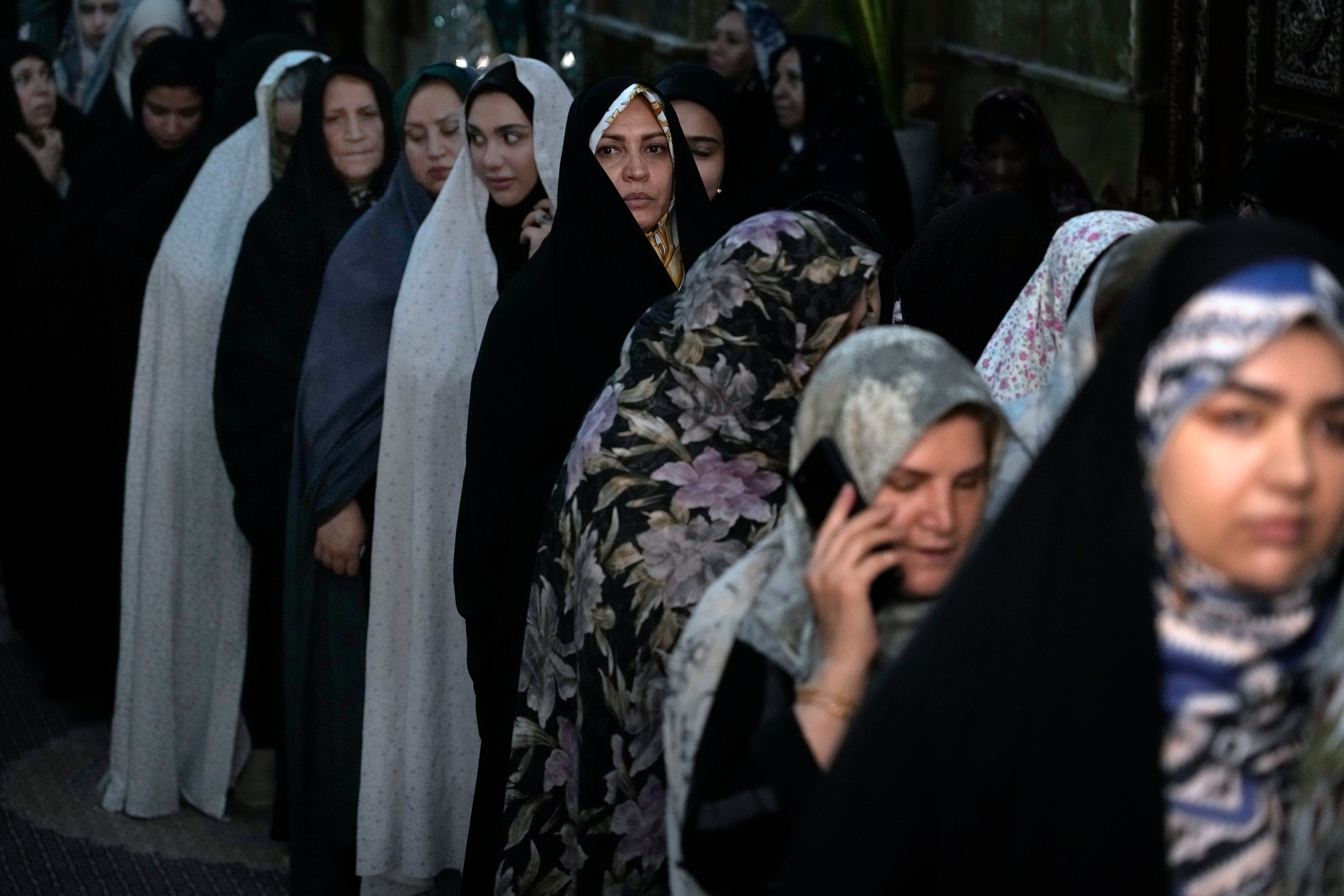Tehran police close Turkish Airlines office after its employees defy Iran's headscarf law
Police have shut down the Turkish Airlines office in the Iranian capital after female employees there apparently refused to wear the mandatory headscarf, or hijab, in an act of defiance of the country's laws

Police in Iran shut down the Turkish Airlines office in the capital of Tehran, Iranian media reported Tuesday, after female employees there apparently refused to wear the mandatory headscarf, or hijab, in an act of defiance of the country’s law.
The semi-official Tasnim news agency said police officers went to the Turkish Airlines office in Tehran on Monday to issue what is called a first warning over the “non-observance of hijab” by the company's employees.
However, the employees — who are Iranian nationals — reportedly “made trouble for the police officers,” prompting the closure. The Tasnim report said police subsequently sealed the office over the employees’ behavior.
According to Tasnim, the Turkish Airlines office will be allowed to reopen on Wednesday and resume business as usual, something that the police did not confirm. The report further said that police would not seal any business due to the non-observance of hijab but issue first warnings.
There was no immediate comment from the Turkish Airlines over the incident in Tehran.
An open defiance of the headscarf law erupted into mass protests across Iran following the September 2022 death of 22-year-old Mahsa Amini after her arrest by the country’s morality police. While those demonstrations appear largely to have cooled, the choice by some Iranian women to remain uncovered in the street poses a new challenge to the country’s theocracy.
Iranian authorities have over the past years shuttered hundreds of businesses across the country — from shops, restaurants to pharmacies and offices — for quietly allowing their female employees to forgo wearing the hijab.
That reinforcement was intensified in the months running up to Iran’s presidential election in June to replace the late President Ebrahim Raisi who died in a helicopter crash a month earlier.
The fracas at the Tehran office of the Turkish Airlines took place on the same day as Turkish President Recep Tayyip Erdogan called Iran's President-elect Masoud Pezeshkian to congratulate him on his win in Iran's presidential runoff last week.
Pezeshkian bested hard-liner Saeed Jalili in the election by promising to reach out to the West and ease enforcement on the country’s mandatory headscarf law after years of sanctions and protests squeezing the Islamic Republic.
The state-run IRNA news agency quoted Tehran Prosecutor Ali Salehi as saying that no legal proceedings or ruling had been issued regarding the sealing the Turkish Airlines office in Tehran.
Iran and Turkey have maintained good relations and in 2023, the volume of bilateral trade between the two stood at $5.4 billion. Turkey is also a popular tourist destination for Iranians, with some 2.5 million visiting last year.
Turkish Airlines is a favored carrier among Iranians because of the shorter travel time to the United States and Canada, compared to other long-haul flights from Arab countries in the Persian Gulf.
Bookmark popover
Removed from bookmarks